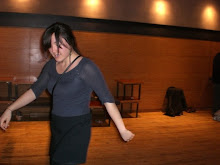One thing about me, whether annoying or endearing, is I am constantly being reminded of one thing by another. I enjoy linking books and stories I've read to one another, often confusing their meanings, exact phrasing or initial (and current) effect on me.
In this story, the second in the collection, I was reminded of the movie Revolutionary Road. If you haven't seen it, no matter--Willett does a more-than-sufficient job alluding to the complete breakdown of something unrealizedly precarious and delicate. Like a child architect, she builds up the relationship of the Linguards, Kenneth and Anita, only to tear it down with their own hands. But this story doesn't end in a colorful pile of Legos, rather with a heartbreakingly pessimistic promise that the buildup and breakdown is merely number one on a list of many. The art is in her ability to present situations that end up carrying all the weight in the world, conversations between people that decide outcomes of battles and wars they refuse to acknowledge that they are waging and fighting. This is where the ultimate sadness lies--not in the actual breakdown of something beautiful, but in the characters' willingness to push it--and with such force as to disallow any doubt of their intentions--over the edge. You watch them being shown the limits of their love and then watch, astounded (though without disbelief), while they push right on past those limits. It is this lack of disbelief that hurts the most. It is the essence of Willett's writing: revealing frustrating depth in absurdly superficial moments. You see these people and the exclamation in the forefront of your mind is not, "What are they thinking?" but "We all do it."
What I Wish I'd Written: "But she didn't stop laughing when everyone else did; she would stop, and glance at Kenneth, and then start afresh. She kept saying,'I'm sorry,' but she couldn't have been, because clearly all she had to do to stop was quit recharging herself, which she finally did. She stared down at her lap, biting her lower lip like a choirgirl with the giggles."
9 years ago



The "refuse to acknowledge" part is it, absolutely it, and I didn't see it before (so thank you for that). You're right - they know but they don't, or won't, or can't see, and their tragedy becomes ours. Wonderful. Thank you.
ReplyDelete